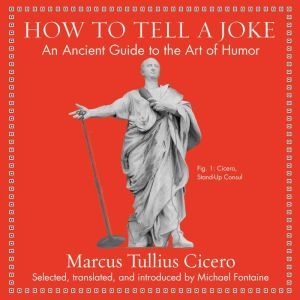

How to Tell a Joke
An Ancient Guide to the Art of Humor
Author: Marcus Tullis Ciccero, Michael Fontaine
Narrator: Roger Clark
Unabridged: 2 hr 30 min
Format: Digital Audiobook Download
Publisher: Highbridge Audio
Published: 03/30/2021
Categories: Nonfiction, Humor, Language Arts, Public Speaking, Speech Writing
Synopsis
As powerful as jokes can be, they are also hugely risky. The line between a witty joke and an offensive one isn't always clear. Cross it and you'll look like a clown, or worse. Here, Cicero and Quintilian explore every aspect of telling jokes—while avoiding costly mistakes. Presenting the sections on humor in Cicero's On the Ideal Orator and Quintilian's On the Orator's Education, How to Tell a Joke examines the risks and rewards of humor and analyzes basic types that listeners can use to write their own jokes.
Filled with insight, wit, and examples, including more than a few lawyer jokes, How to Tell a Joke will appeal to anyone interested in humor or the art of public speaking.

